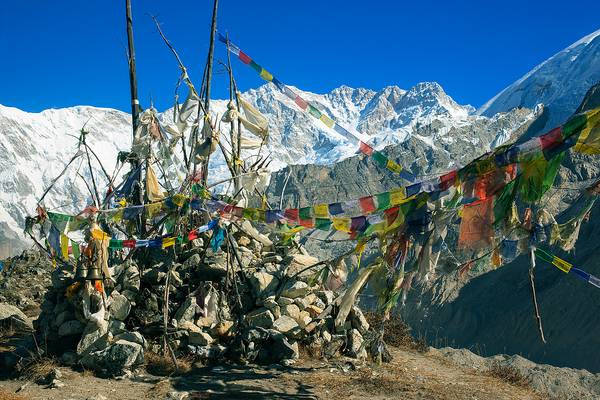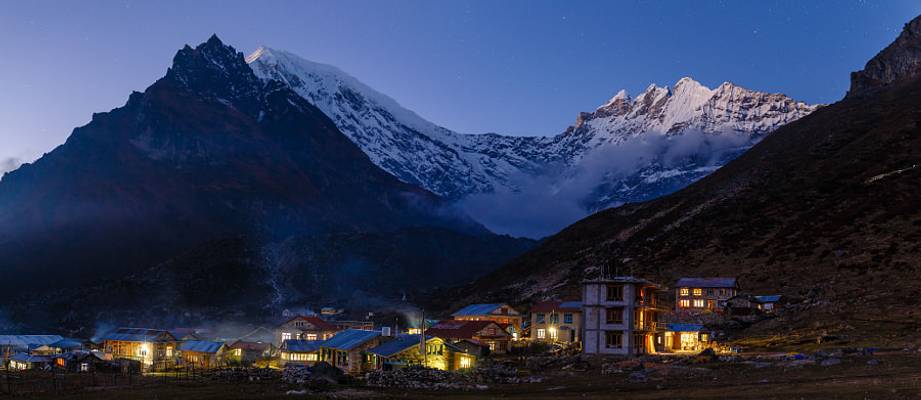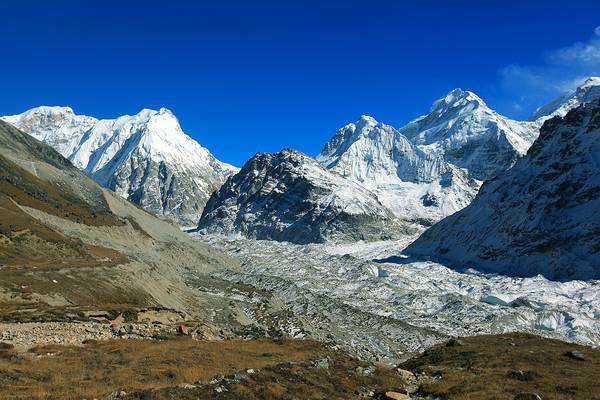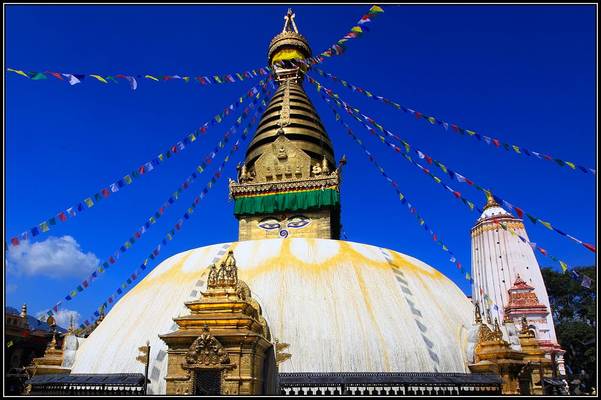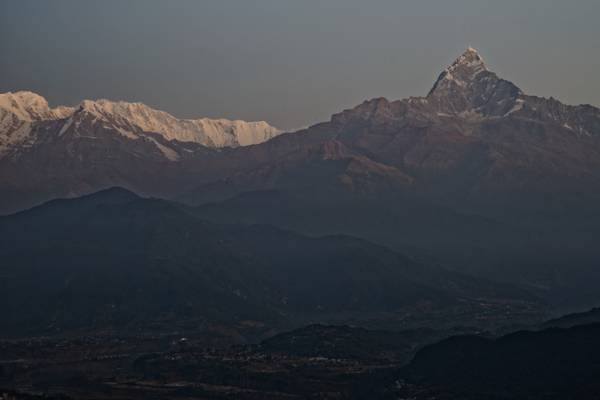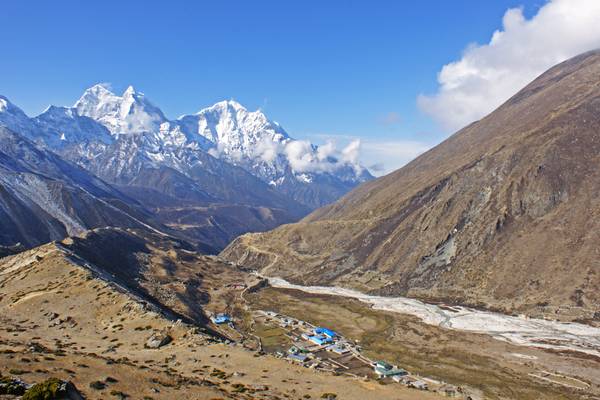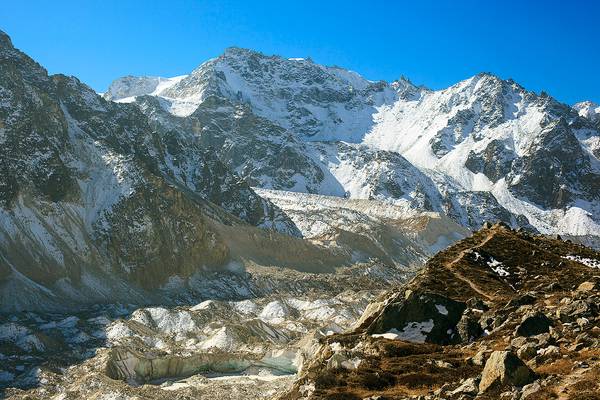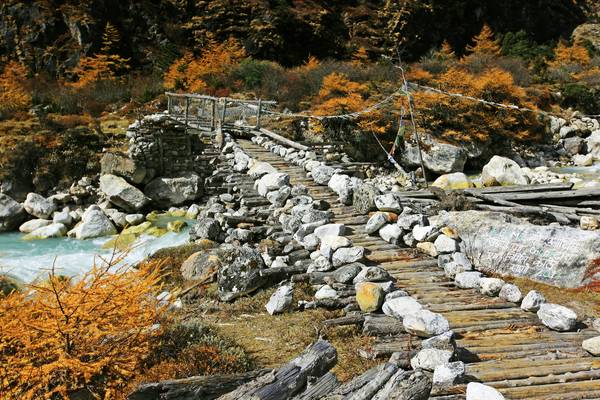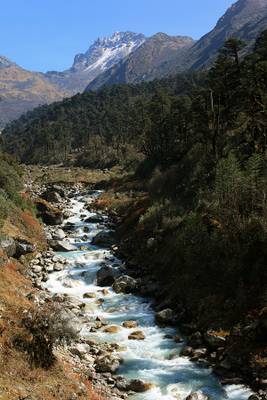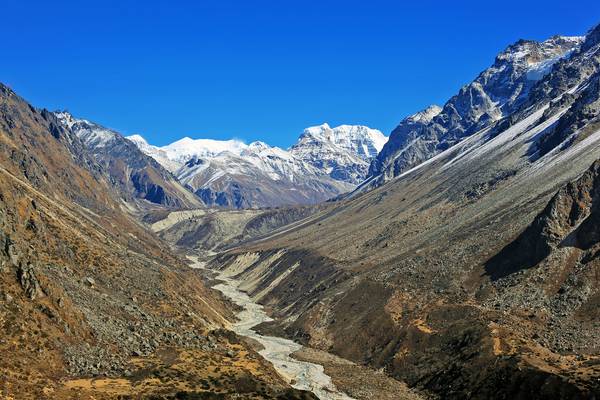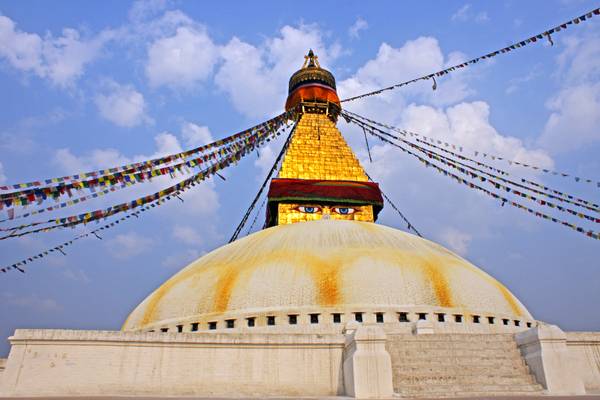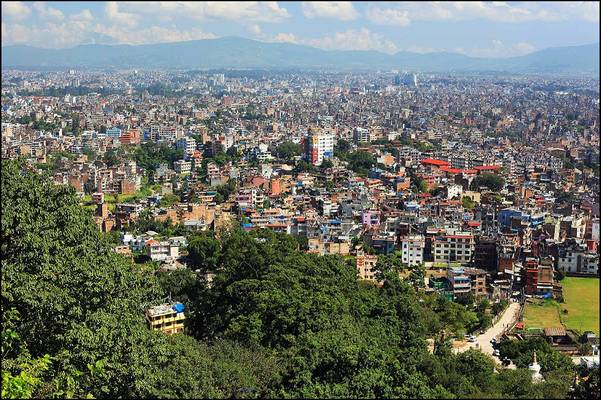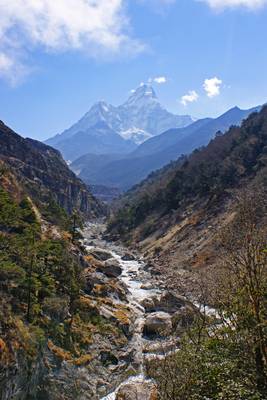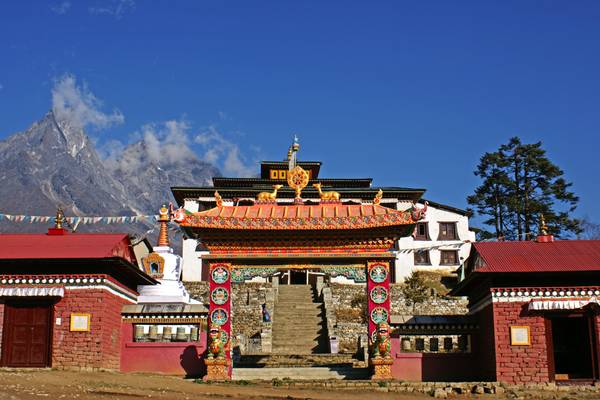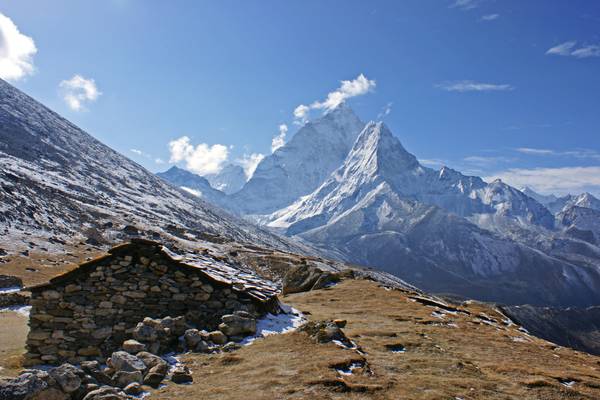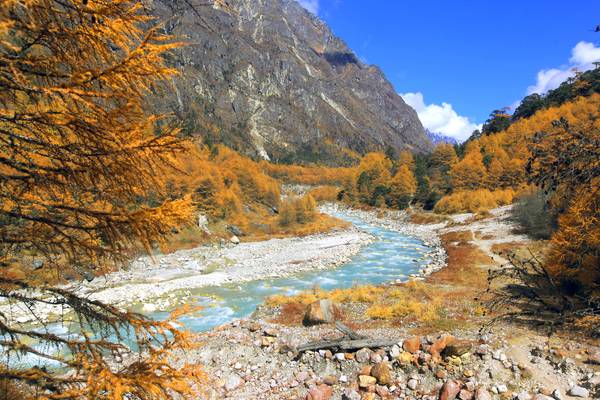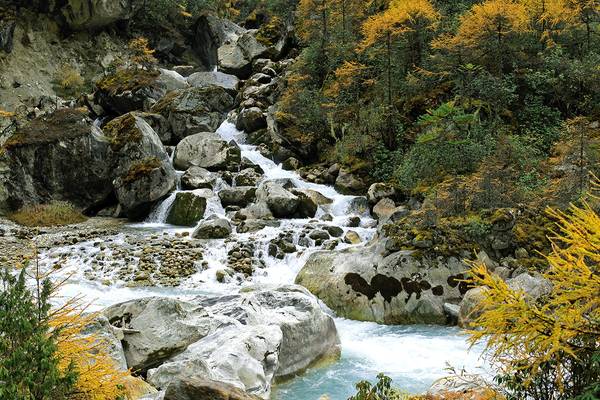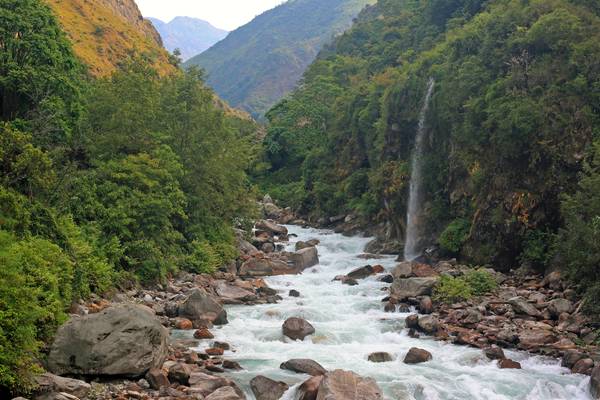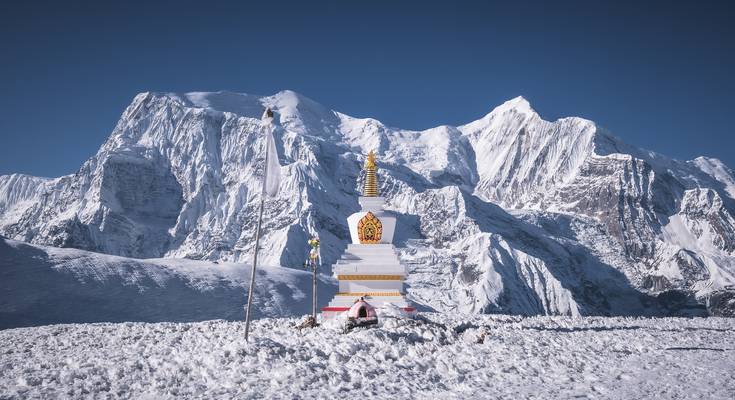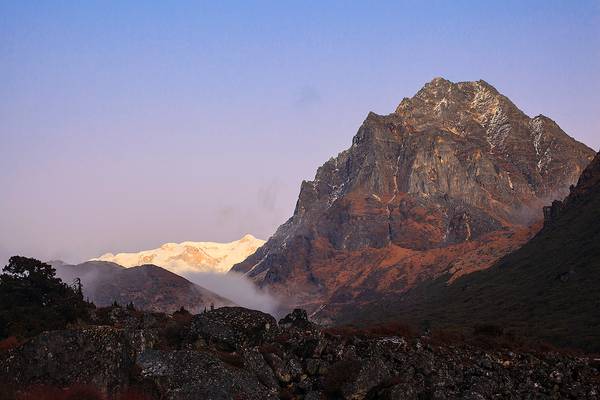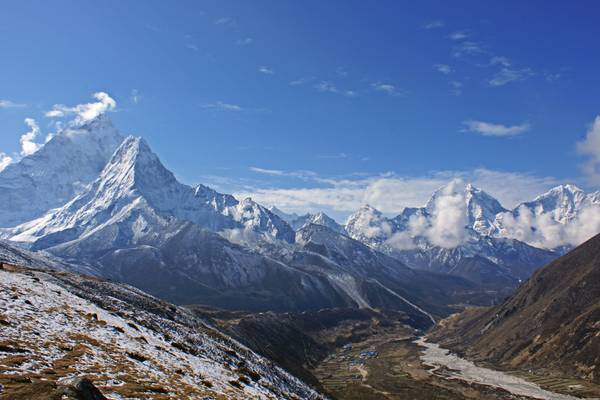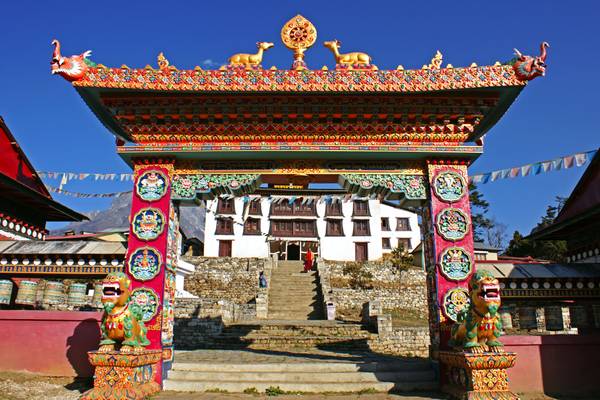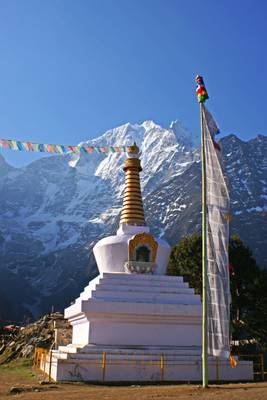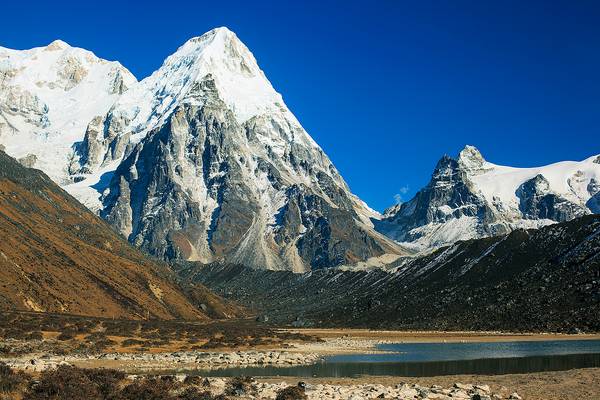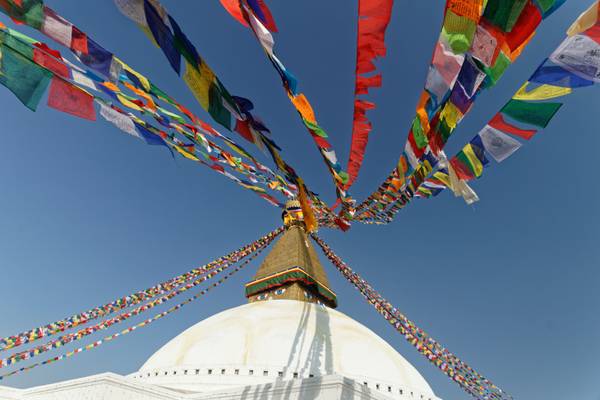
Nepal
Nepal is a country located in South Asia, known for its stunning landscapes, rich culture, and diverse wildlife. It is a popular destination for photographers, offering a plethora of breathtaking locations to capture. From the towering Himalayan mountains to the lush green forests, Nepal has something for every type of photographer. The country is also home to several UNESCO World Heritage Sites, including the ancient city of Kathmandu and the birthplace of Buddha in Lumbini.
Photography regions of Nepal
Photography of Nepal
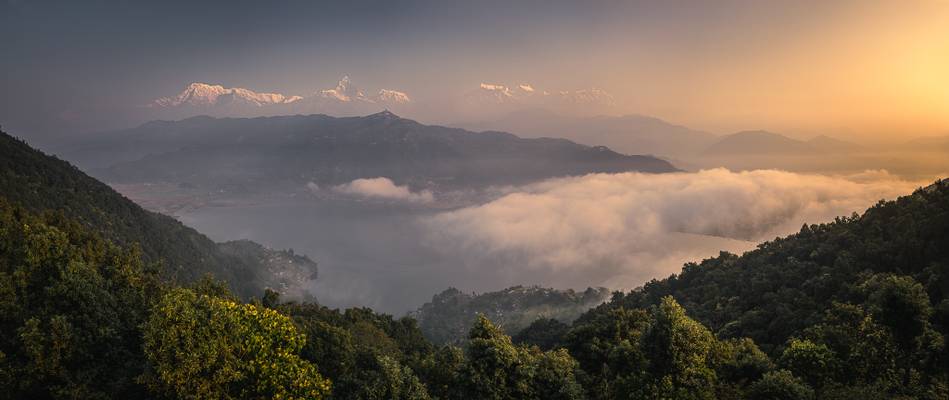
by Jiri Hajek
The title refers to the two weeks I spent going around the Annapurna range, which is visible in its entirety in this photograph.
The views from the Pokhara World Peace Pagoda are amazing, you can see Lake Phewa right below and the mountains behind, including several Annapurna summits and the iconic Machhapuchhare (Fish tail).
Photo Tips: The Pagoda itself can be closed for sunrise and sunset and also tripods are not allowed there. However there are several nice viewpoints nearby, like this one at a nearby restaurant (or around it, if closed).
Bring either an ultra wide lens, or expect to stitch a panorama, as I did in this case.
Sunrise generally offers a better chance to photograph the mountains, as they are often in clouds since the afternoon. However, if visible, both mornings and evenings are great here.
Getting there: You can either walk up the hill (about 250 vertical meters), or take a taxi from Pokhara. From Lakeside it costs about 1000 rupees and takes roughly 20 minutes.
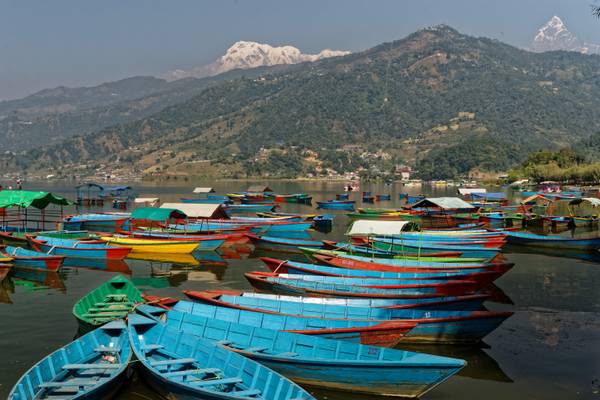
by jim stephenw
Phewa Lake (formerly called Baidam Tal) is a freshwater lake in Nepal located in the south of the Pokhara Valley. The lake is stream-fed but a dam regulates the water reserves, therefore, the lake is classified as semi-natural freshwater lake. It is the second largest lake in Nepal and is the most popular and most visited lake of Nepal. It is the only lake in Nepal to have a temple (Tal Barahi Temple) at the central part of lake. Phewa Lake is located at an altitude of 742 m (2,434 ft) and covers an area of about 4.43 km2 (1.7 sq mi). It has an average depth of about 8.6 m (28 ft) and a maximum depth of 24 m (79 ft). The Annapurna range on the north is only about 28 km (linear distance) away from the lake.
Info sourced from Wikipedia
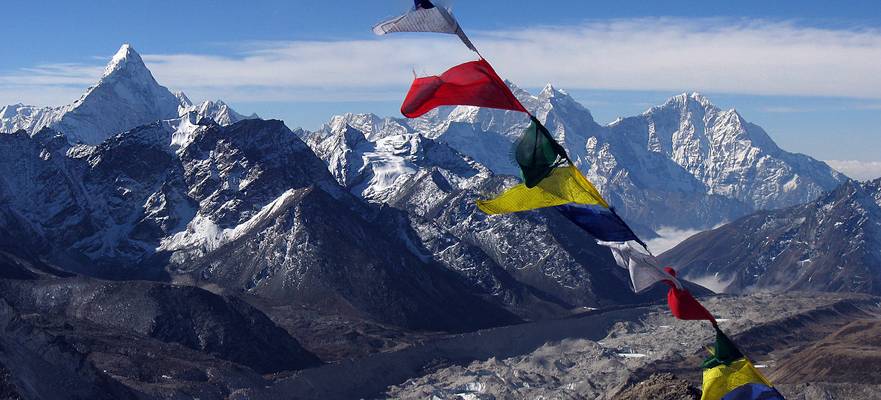
by Clive Griffiths
This is a view from Gokyo Ri.
Please give generously to the disaster fund.
This was one of the best views from the biggest walk of my life.
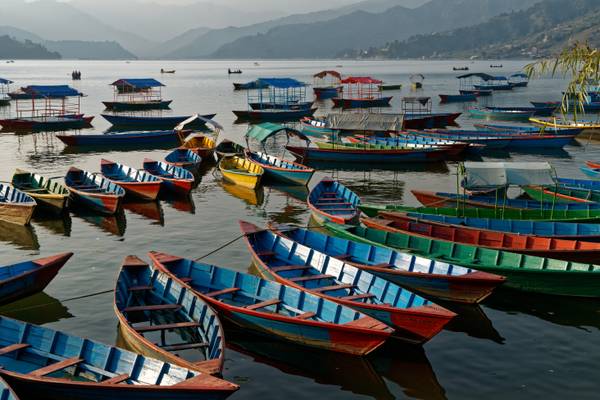
by jim stephenw
Phewa Lake (formerly called Baidam Tal) is a freshwater lake in Nepal located in the south of the Pokhara Valley. The lake is stream-fed but a dam regulates the water reserves, therefore, the lake is classified as semi-natural freshwater lake. It is the second largest lake in Nepal and is the most popular and most visited lake of Nepal. It is the only lake in Nepal to have a temple (Tal Barahi Temple) at the central part of lake. Phewa Lake is located at an altitude of 742 m (2,434 ft) and covers an area of about 4.43 km2 (1.7 sq mi). It has an average depth of about 8.6 m (28 ft) and a maximum depth of 24 m (79 ft). The Annapurna range on the north is only about 28 km (linear distance) away from the lake.
Info sourced from Wikipedia

by David ruiz luna
In Pangboche (3930m), the town which we can see in the inferior angle of this photo, begins the way to climb up this fabulous mountain. En Pangboche (3930m), el pueblo que podemos ver en el ángulo inferior de esta foto, comienza el camino para subir esta fabulosa montaña.
Trekking to the Everest Base Camp. Sagarmatha National Park. Nepal.
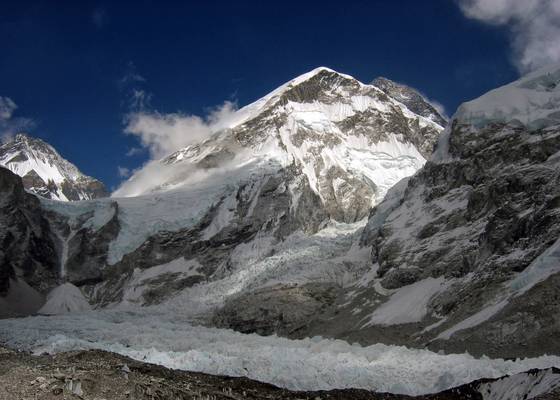
by Clive Griffiths
Finally it looks like we may be taking small small steps out of lockdown, but the hills of Wales and Scotland are still going to be out of bounds. To mark the moment, I thought I would upload an older image of the biggest 'hill' of all, Everest. Taken not that far from Everest Base Camp, this shows the enormous ice cascade, the Khumbu Icefall, slowly grinding and crashing its way down from the Western Cwm to join the Khumbu Glacier. The summit of Everest glowers black against the deep blue sky, rinsing another 11,000 feet above the point where i was standing.
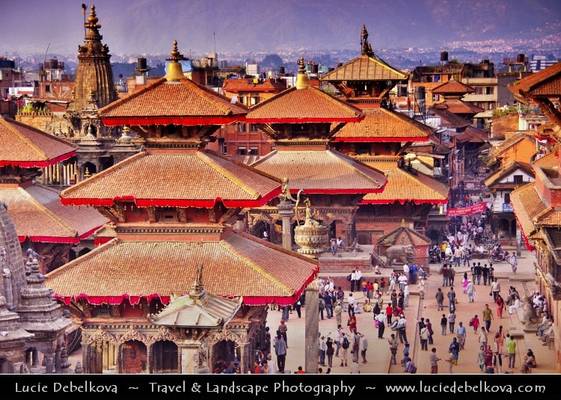
** Join me on Facebook | Google+ | Twitter | 500px | Instagram **
Patan Durbar Square, like its counterpart in Kathmandu, is an...
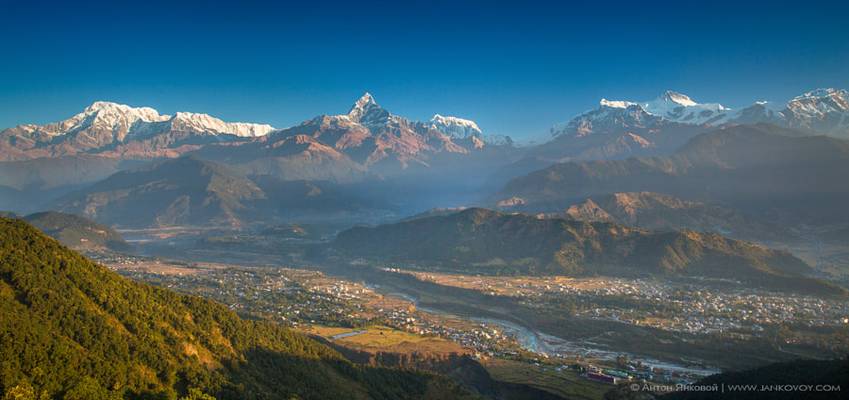
by Anton Jankovoy
500px.com
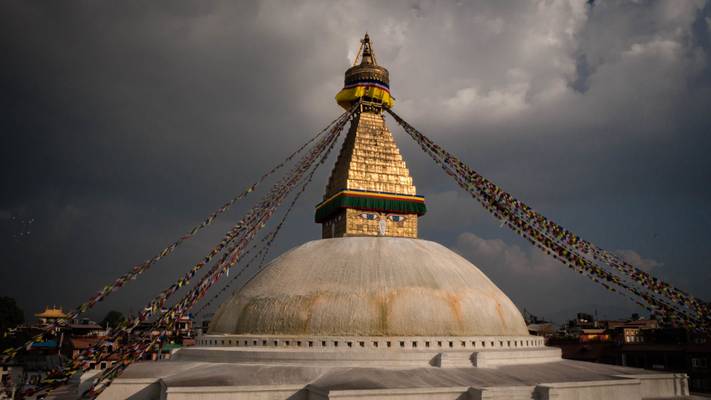
by David ruiz luna
The Buddhist stupa of Boudhanath is one of the largest in the world. Since 1979, Boudhanath is a UNESCO World Heritage Site and it is one of the most popular tourist sites in Kathmandu.
La estupa budista de Boudhanath es una de las más grandes del mundo. Desde 1979 es patrimonio de la humanidad por la UNESCO y es uno de los sitios turísticos más populares en Katmandú.
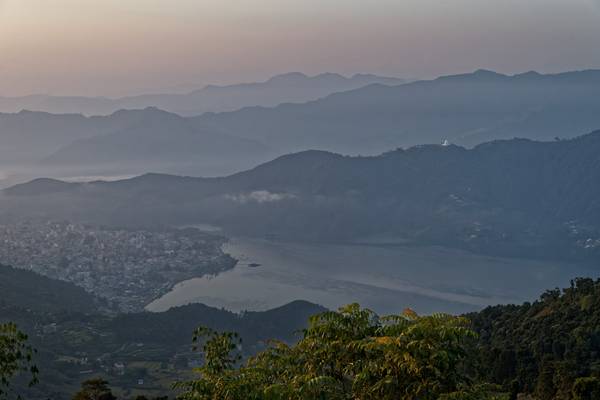
by jim stephenw
The Buddhist temple Pokhara Shanti Stupa can be seen on the hilltop above the lake.
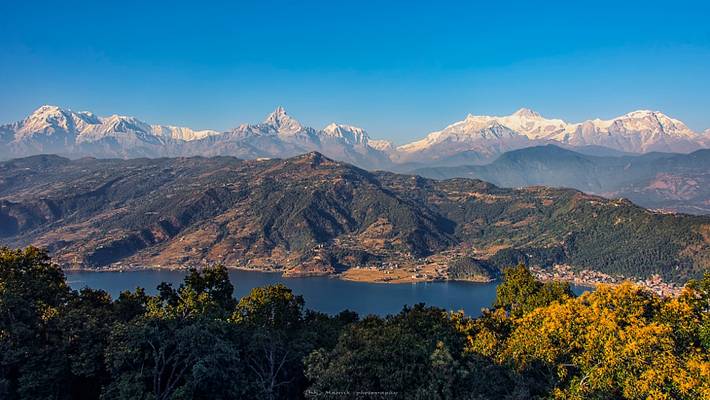
by Manjik Pictures
500px.com
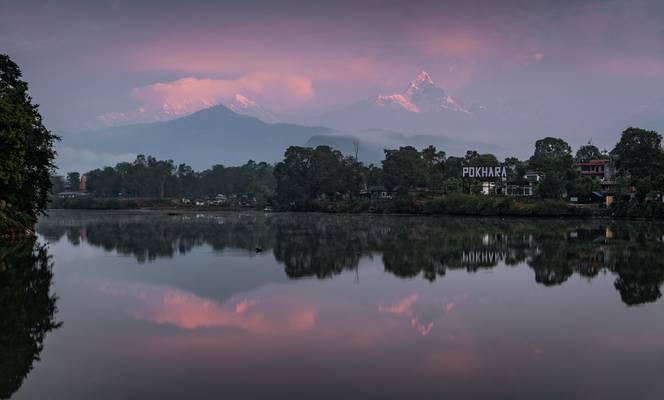
by Jiri Hajek
A beautiful spot to watch first light touching the majestic Himalayas towering above Pokhara and reflected in Lake Phewa.
Photo Tips: Normal to Wideangle lens will be most useful here to capture both the mountains and reflections. Panorama might be an option too. I prefer Sunrise, as it offers a better chance for views, there are often clouds in the evening.
Getting there: It's a short walk (at most 2 km) from anywhere in the Lakeside district of Pokhara, so it's easy to get there for sunrise (or any other time of day, if you prefer).
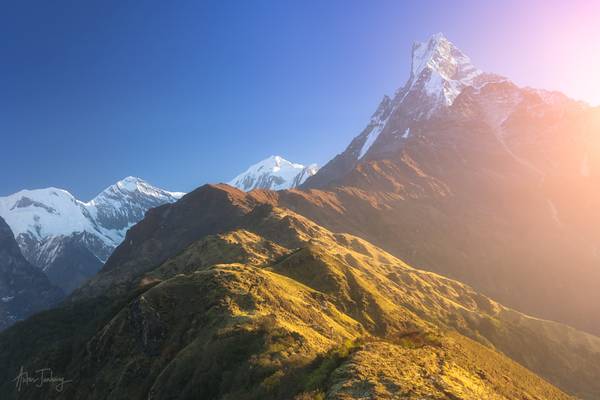
by Anton Jankovoy
500px.com
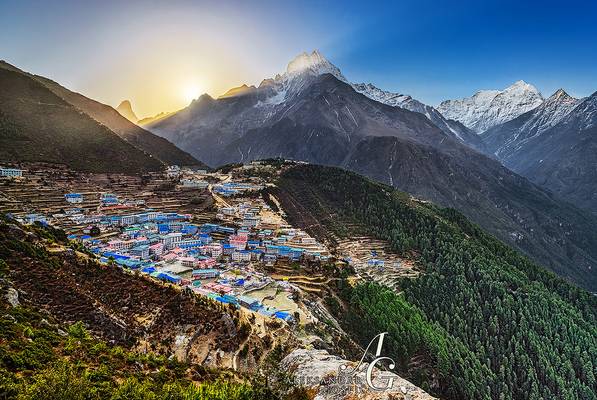
Moment of sunrise above Namche Bazaar (3440m), the main village of the Himalayan Sherpa people, which lies on the steep Himalayan slopes deep in the...
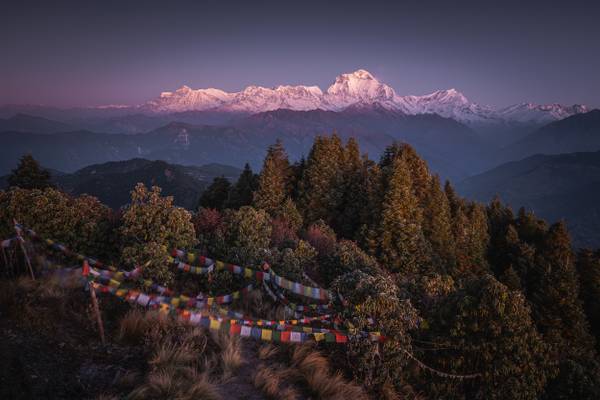
by Jiri Hajek
Viewpoint at the top of the Poon Hill is one of the most famous in the Annapurna area. And there's a good reason for the popularity, as the views are really magnificent. You can see several Annapurna summits to the North, together with the Machhapuchhare (Fish tail). However, this photograph is made towards west, where is the Dhaulagiri range.
Popularity of this place however means, that you'll not have the view for yourself, unlike most of the other views in Himalaya. Expect even hundreds of people here for Sunrises, all of them get up early down at Ghorepani and climb up all the steps (more than 300 vertical meters) before the Sun rises.
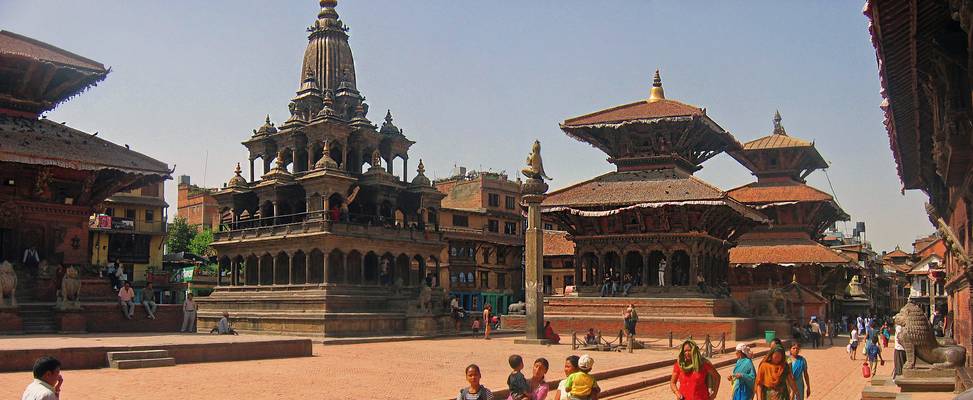
by Clive Griffiths
It appears this historic site has been all but destroyed.
Please give what you can.
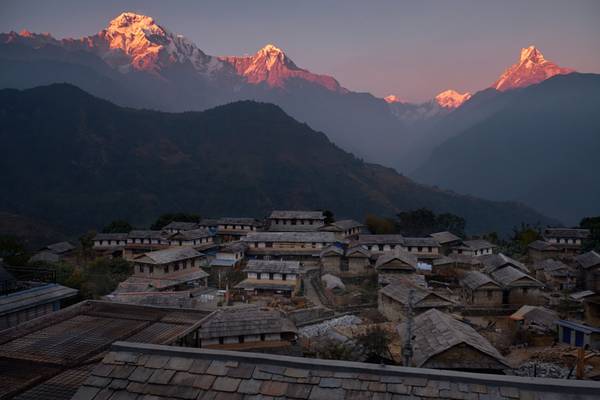
by Frédéric Lachaume
500px.com
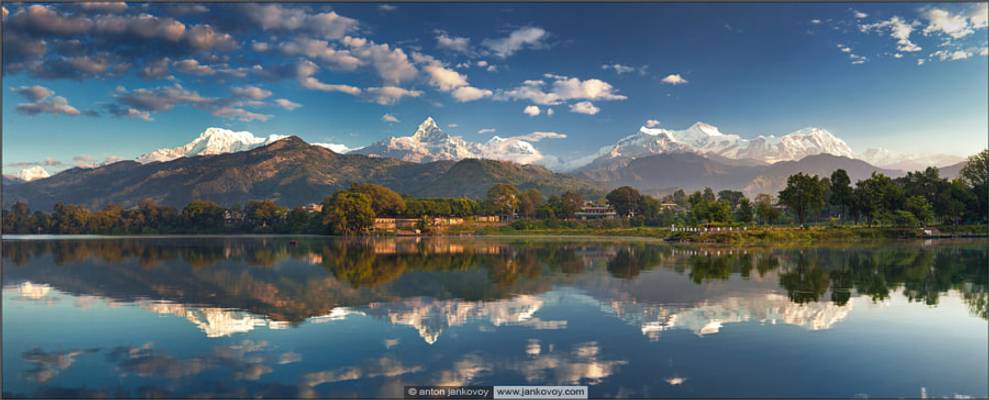
by Anton Jankovoy
500px.com
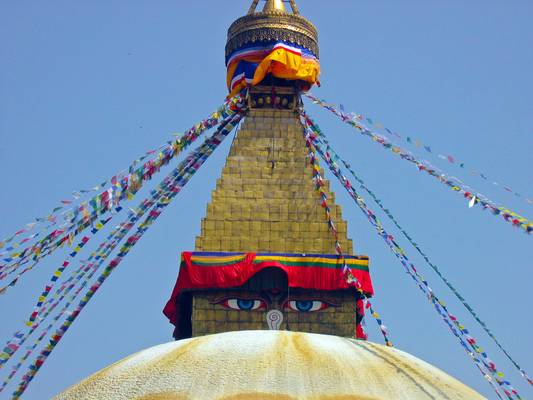
by Clive Griffiths
Please do what you can to help the Disaster fund.
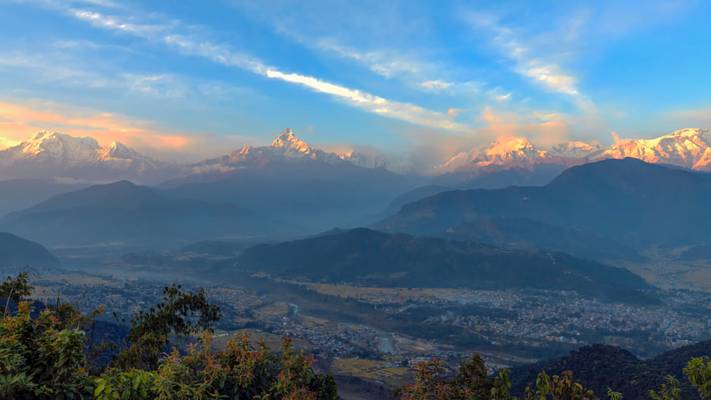
by Crystal Frame Photography
500px.com
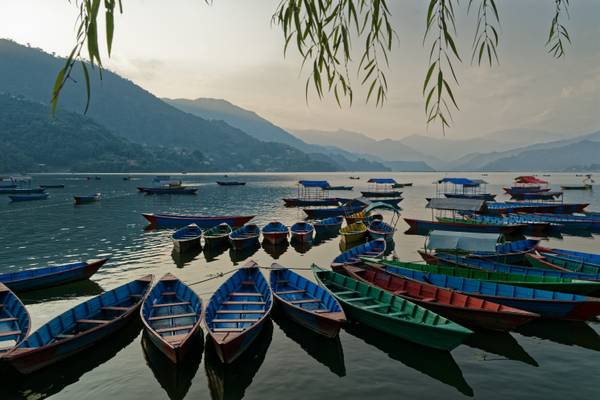
by jim stephenw
Phewa Lake (formerly called Baidam Tal) is a freshwater lake in Nepal located in the south of the Pokhara Valley. The lake is stream-fed but a dam regulates the water reserves, therefore, the lake is classified as semi-natural freshwater lake. It is the second largest lake in Nepal and is the most popular and most visited lake of Nepal. It is the only lake in Nepal to have a temple (Tal Barahi Temple) at the central part of lake. Phewa Lake is located at an altitude of 742 m (2,434 ft) and covers an area of about 4.43 km2 (1.7 sq mi). It has an average depth of about 8.6 m (28 ft) and a maximum depth of 24 m (79 ft). The Annapurna range on the north is only about 28 km (linear distance) away from the lake.
Info sourced from Wikipedia
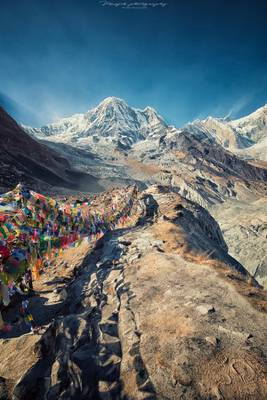
by Manjik Pictures
500px.com
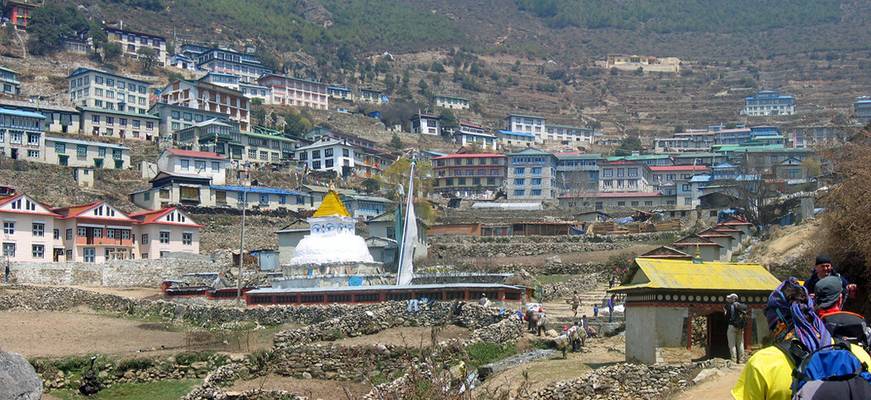
by Clive Griffiths
Reported epicentre of today's earthquake, and a place that will be known to anyone who has visited the Everest region of Nepal.
In our thoughts.
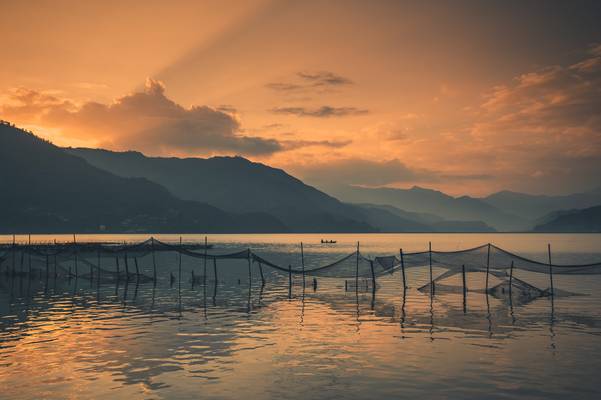
by Jiri Hajek
There's an interesting foreground element at this part of Lake Phewa shore, fishing nets enclosing a fishery station (not sure exactly whether what it's for). It's about a different perspective as you don't get the typical colorful boats here close to the camera.
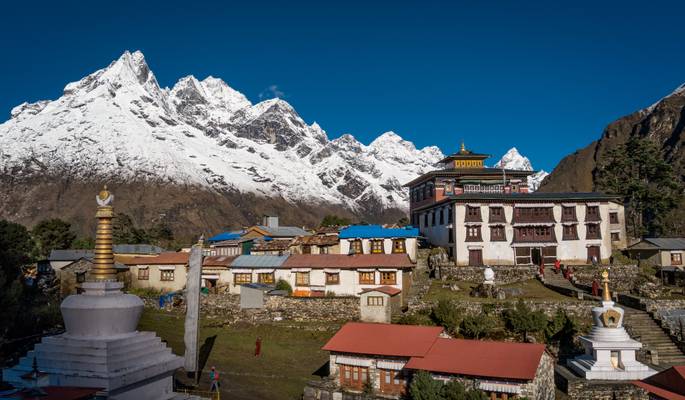
by David ruiz luna
Este monasterio alberga unos 60 monjes. A finales de Octubre o principios de Diciembre se celebra el Mani Rimdu, un festival en el que los monjes bailan con llamativas máscaras al ritmo de tambores. Se encuentra en un lugar privilegiado con unas excepcionales vistas del Ama Dablam y el Lhotse.
This monastery accommodates about 60 monks. In late October or early December is celebrated Mani Rimdu Festival, which the monks with striking masks dance to the beat of drums. It is in a prime location with exceptional views of Ama Dablam and Lhotse.
Trekking to the Everest Base Camp. Khumbu area. Solukhumbu District. Sagarmatha National Park. Nepal.

Sarangkot is a hill on the western side of the popular town of Pokhara, Nepal with an altitude of 1600m. Sarangkot is known for offering a panoramic...
Thanks to all Phoide contributors to Nepal!
Most notably Jiri Hajek, Andrey Bogdanov, Andrey Sulitskiy, jim stephenw and Clive Griffiths.
